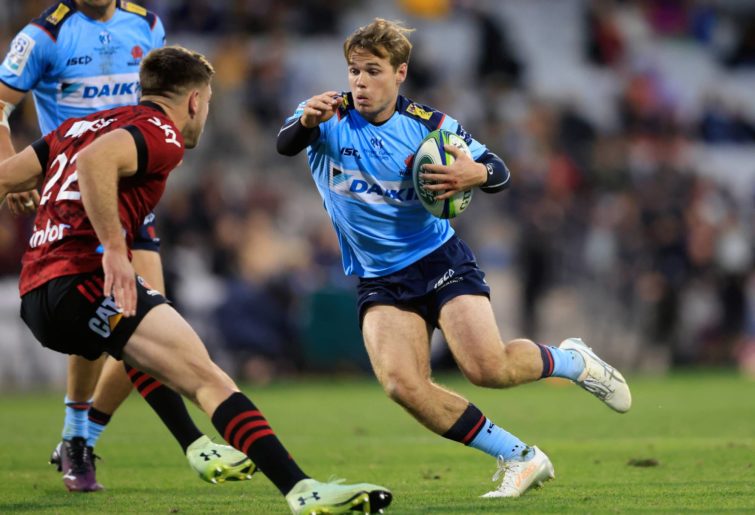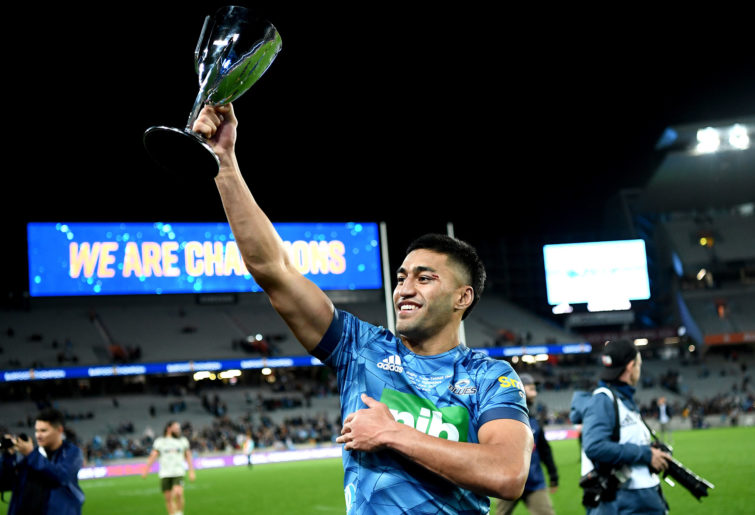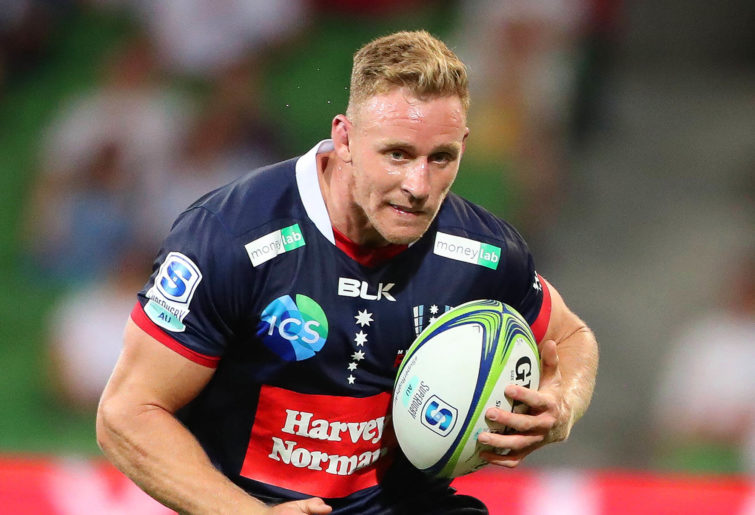If Super Rugby were a patient, it would have been taken off life support long ago.
Stricken by COVID; South African, Argentine and Japanese limbs amputated; and unwanted by a long-term broadcast partner, many Australian fans have been hollering for the plug to be pulled.
But rather than take the easy option – letting Super Rugby roll over and die – Rugby Australia and New Zealand Rugby set aside their not inconsiderable differences and undertook to save and rebuild the patient.
In launching the new season last week Rugby Australia CEO Andy Marinos described how “a new era is upon us”, referencing the addition of two new sides, Moana Pasifika and the Fijian Drua, to what is no longer Super Rugby, Super Rugby Aotearoa or Super Rugby AU, but Super Rugby Pacific.
With that comes a hint of romance and a sense of old wrongs finally being righted. Albeit that some of that goodwill and optimism is laced with trepidation around how Moana Pasifika will cope getting a taste of the medicine dished out to Australian franchises in recent times.
There is also a tacit acknowledgment that last season’s competition was compromised and artificial, with the New Zealand sides, assuming victory against Australian opposition, openly hunting bonus points. The Crusaders finishing undefeated but failing to make the final spoke to what was effectively a gap year, where the final outcome wasn’t as important as having got some kind of competition off the ground.

(Photo by Mark Evans/Getty Images)
Despite the will to move forward, some of the same applies this year. The six New Zealand-based sides are in an Otago bubble, with the opening match already postponed. For individuals who have been infected, survived and now want to get on with their lives, COVID may have diminished as a threat. But until the New Zealand and West Australian governments figure out a path forward, Super Rugby will almost certainly be thrown more curveballs as the season progresses.
That we are at the cusp of Round 1 is a testament to the hard work of many on both sides of the Tasman, led by a small committee comprising Chris Lendrum (New Zealand Rugby), Ben Whittaker (Rugby Australia) and franchise CEOs Andrew Hore (Blues), Avan Lee (Hurricanes), Paul Doorn (Waratahs) and Baden Stephenson (Rebels).
Planning anything in an environment framed by multiple jurisdictions and fickle politicians means that nothing can ever be assumed. Contingency is piled upon contingency, detail embraced and discarded over countless zoom meetings, all of it motivated by a determination to deliver a competition come hell or high water.
“We understand how rugby people want certainty, but it’s just not possible in this environment to be totally prescriptive,” said Stephenson last week. “What’s important is that we plan for all eventualities and remain nimble enough to deal with whatever gets thrown at us.”
It’s here where some trans-Tasman differences are thrown up, with the New Zealand CEOs reaching out to the Australian franchises to look at how things have been handled during the pandemic.
“It’s fair to say that New Zealand had been concerned about how long the All Blacks had been on the road, and they were reluctant to commit to a time away without a clearly defined end point,” Stephenson explained.
“But we’ve shown how it’s possible to be reactive. The Rebels did it twice in the last two years, once with a day’s notice, once with three hours notice, hitting the road without really knowing where we were headed or for how long. The Force just made a quick decision to relocate to the east, and now we’ve seen New Zealand start to do the same thing, setting up the Queenstown bubble.”

(Photo by Hannah Peters/Getty Images)
Out of adversity comes strength, and Stephenson is happy to reflect on how COVID – despite the severe financial implications – has helped deliver some benefits for Australian rugby.
“In the early stage, despite being under severe personal pressure, Raelene (Castle) did a great job holding everything together and keeping everyone informed. That was carried on by Rob Clarke, and now Andy (Marinos) has maintained the focus on keeping everyone aligned on and off the pitch.
“Obviously we all want to win, but it’s constructive for Australian rugby to move on from some of the big personalities and provincial parochialism of the past,” he concluded.
Force CEO Tony Lewis happily backs up that view, stating: “The key for Australian rugby is to move beyond past grievances and stay forward focused. And I’ve been very impressed at the amount of goodwill and cooperation that’s been achieved.”
Lewis has also played a prominent role working with the West Australian government to broker a solution for the Force that didn’t involve playing every match away from home.
“I was adamant that we would deliver home matches for our fans and sponsors, and by basing ourselves outside the state and getting permission to travel in and out in a bubble, we’re able to achieve that,” he tells The Roar.
So with the competition effectively split into separate Australian and New Zealand sections until crossover matches, what can we expect to see on the pitch?
Starting with Australia, there’s a strong case to be made for the Force, Rebels and Waratahs all being better than last year. Those taking the early short odds on a Reds-Brumbies quinella might not have everything their own way.
This feels like a situation where topsy-turvy results will rule the day. Win one week, lose the next. The Reds and Brumbies remain favoured because what counts in this competition isn’t so much players 1 to 15 but the quality of the cattle from numbers 16 to 35 and the ability of those players to gel cohesively when coming in cold and without much rugby under their belts.
The Force are particularly intriguing. With plenty to prove, Izack Rodda is an impactful signing, and their starting pack looks as strong as any of the Australian sides. But with other squads already having suffered COVID outbreaks, effectively having ‘got it out of the way’, the crunch will come for the Force when COVID inevitably catches up with them at some point during the season.
The Rebels’ first-choice pack also looks formidable, but already Trevor Leota has been sidelined for 12 weeks with a broken foot. And with Pone Fa’amausili, Matt Philip, Rob Leota and Richard Hardwick all battling various afflictions, their depth will be tested sooner than anyone was expecting.

(Photo by Asanka Ratnayake/Getty Images)
As is the Australian way, chat about the Waratahs has been dominated by discussion about who will start at No. 10. As important as this is – and at this stage it appears that Ben Donaldson will get first dibs – the Tahs’ fortunes rest with their pack. This feels like a big opportunity for Angus Bell and Lachie Swinton to stamp themselves on the competition and secure their reputations at the elite level.
This year’s Brumbies won’t be any less organised or well coached. They are strong at hooker, and there are high expectations around young locks Darcy Swain and Nick Frost. But with some of their best up-and-coming talent heading off in search of more game time – Mack Hansen, anyone? – they don’t bat quite as deep this season.
The Reds are nicely positioned to build on last year’s Super Rugby AU triumph. All of their starting loose forward trio have points to prove, they should get more out of Filipo Daugunu and Jordan Petaia, and Tate McDermott seems like the kind of player who will relish the extra responsibility handed to him. Oh, and Taniela Tupou.
Buoyed by a trial win in Melbourne and blessed by strong preparation, the Fijian Drua will be everybody’s second team. What struck me up close was the size and conditioning across the squad, and while it is a big ask for them to be winning matches in their first season, expect them to be competitive as well as crowd pleasing and bruising.
Here’s something to consider: with Darren Coleman, Kevin Foote and Mick Byrne in their first year, Dan McKellar in his final year, Brad Thorn still basking in last year’s triumph and Tim Sampson highly regarded in the west, are we looking at a year where, no matter the results, the traditional Australian pastime of demanding the head of a coach doesn’t play out?
Across the Tasman, after years of mediocrity, the Blues will be wondering about the injustice of finally developing their squad into genuine championship material only for that to coincide with the bleeding of a substantial chunk of their fan-base out to Mt Smart Stadium and those who remain being forcibly locked out. If Roger Tuivasa-Sheck stepped through the defensive line in a forest and nobody saw it, did it really happen?
As talented as Josh Ioane is, the Chiefs aren’t quite the same without Damian McKenzie. It feels like their most important combination is Warren Gatland and Clayton McMillan, and if the coaches can strike the right balance and if Samisoni Taukei’aho continues on his upwards trajectory, they should again provide great value.
News that TJ Perenara will miss the first month with a knee injury may be a relief for referees, but it does highlight concerns about depth and quality in the Hurricanes backline. Up front things look better, with big slab Dominic Bird adding presence, and they’ll be as competitive as ever.
Other New Zealand franchises will still be wondering how the Crusaders – the last side needing divine intervention – were able to add Pablo Matera to their roster. The word out of Christchurch is that Matera has been a magnet for the Crusaders’ developing players and, assuming they’ve slapped a parental lock on his Facebook, he shapes as one of the most judicious signings in Super Rugby history. As always, if they don’t win, they’ll be at the pointy end.
Courtesy of the bubble arrangements, home advantage has landed in the lap of Highlanders. Boasting what might be the best halfback one-two combination in rugby, they’ll be looking to Ethan de Groot to build on his breakout 2021 and Shannon Frizell to take advantage of the opening provided by Akira Ioane’s late-season fade-out.
To say that Moana Pasifika face an uphill task is a gross understatement; they’ll be pummelled. Despite Sekope Kepu anchoring one side of the scrum, the squad lacks experience and, having come together late in the piece, the cohesion and familiarity of their opponents. File under long-term project.
We’re excited to announce the launch of The Roar Rugby Podcast co-hosted by our experts Brett McKay and Harry Jones and featuring some special guests. You can check out the trailer below, and the guys will be back for a full Super Rugby preview on Wednesday.
Washed together, all of that feels like a headache for a tipping panellist. But based on the determined, bullish attitude of the CEOs, one thing we can count on is the competition going ahead as scheduled, including the Anzac weekend super round in Melbourne and beyond.
Even if return travel to New Zealand is still proving troublesome, the commitment from both national unions and all of the franchises is so strong that even at short notice the schedule will be rejigged and the New Zealand sides will all adopt an Australian base.
Almost certainly what won’t eventuate is the idea floated last week, that in the event of sides being overwhelmed by COVID matches will be go ahead under the condition of uncontested scrums. Everyone knows how important it is to deliver content for broadcasters, but uncontested scrums are a useful device to help manoeuvre a match through a short period, not a full-match proposition.
Like Christmas music piped into shopping malls, 1 April seems to come earlier every year. The coaches don’t want it, the players don’t want it, the fans don’t want it and it’s open to exploitation. It’s a hard no.































































































